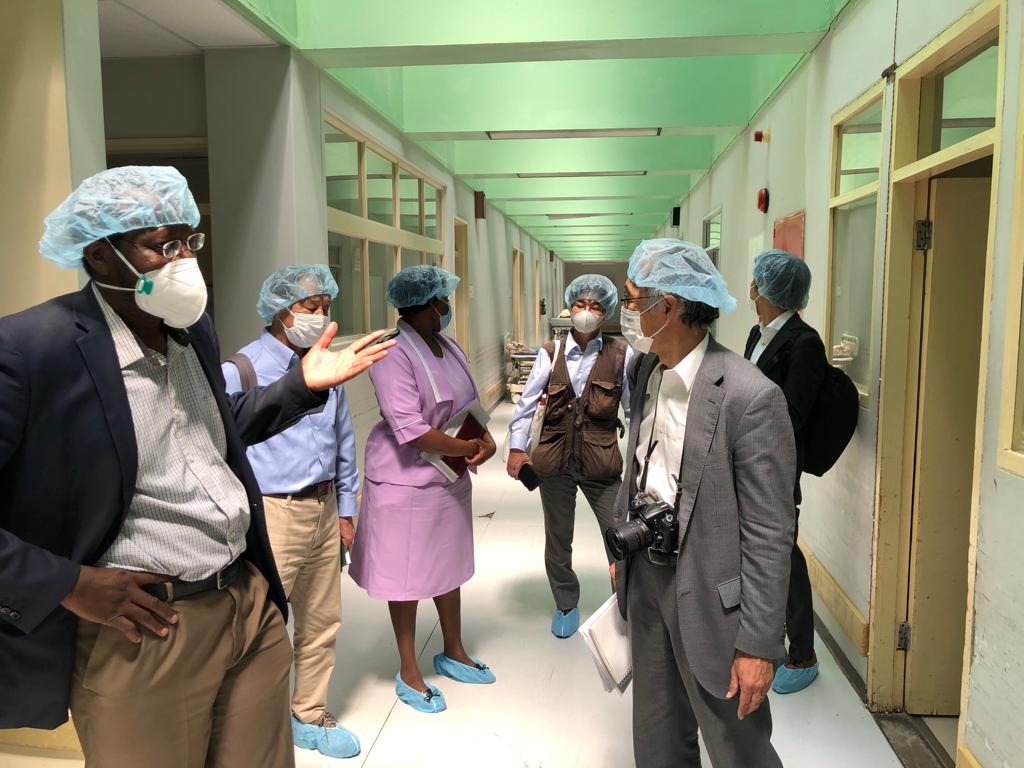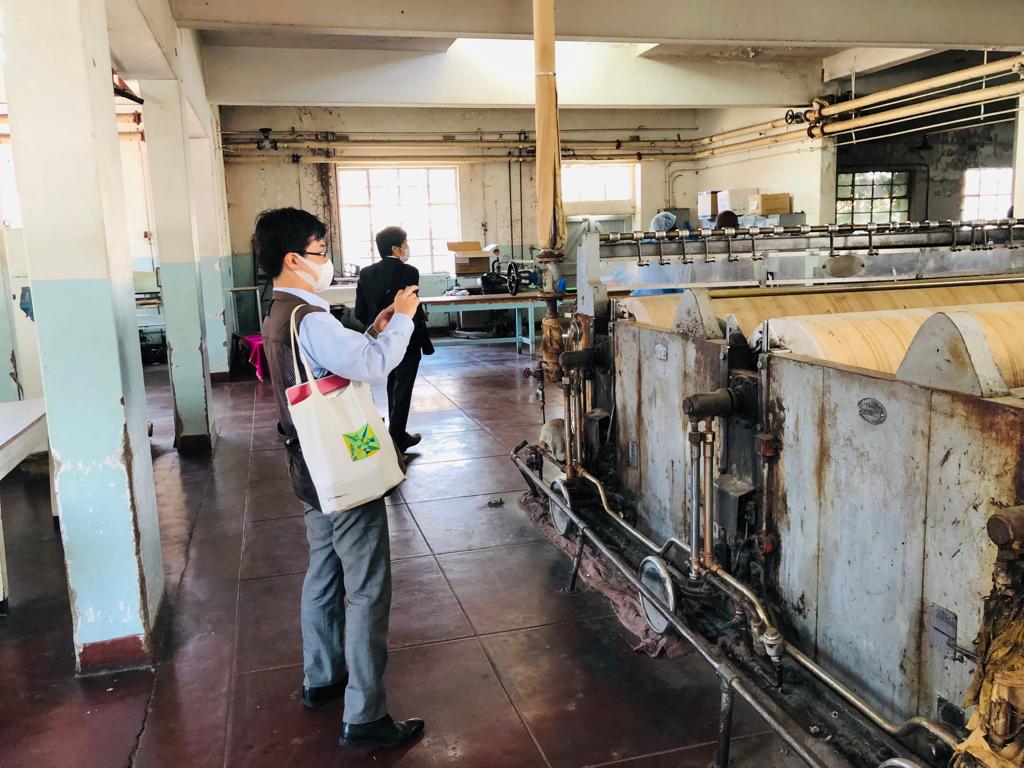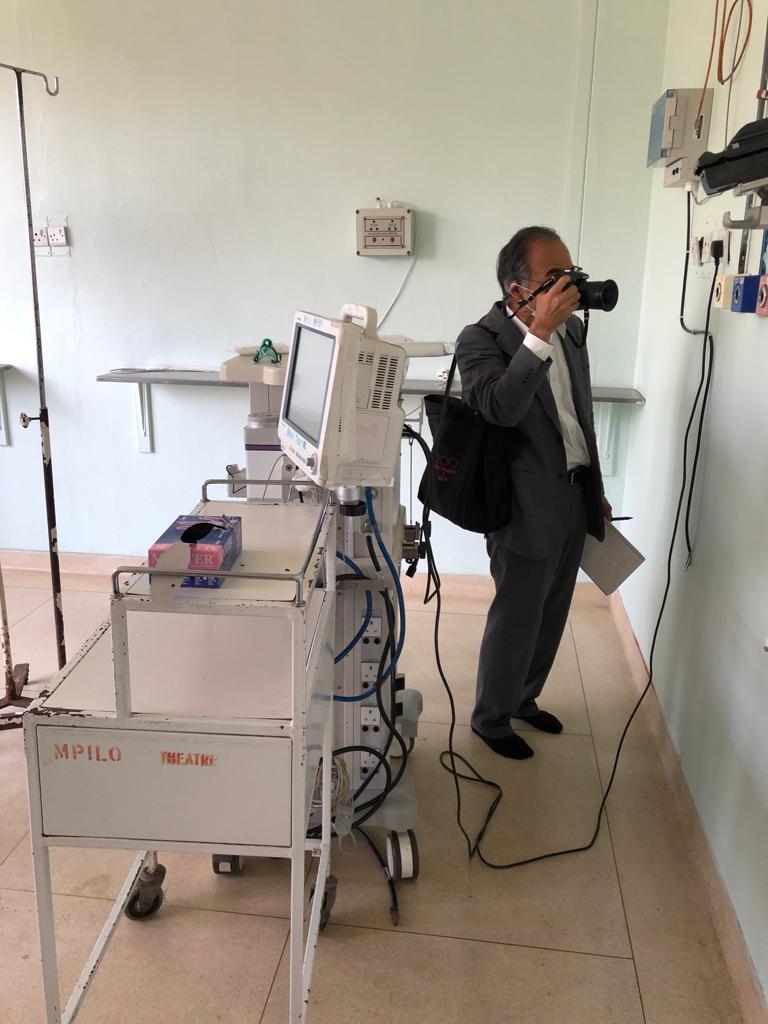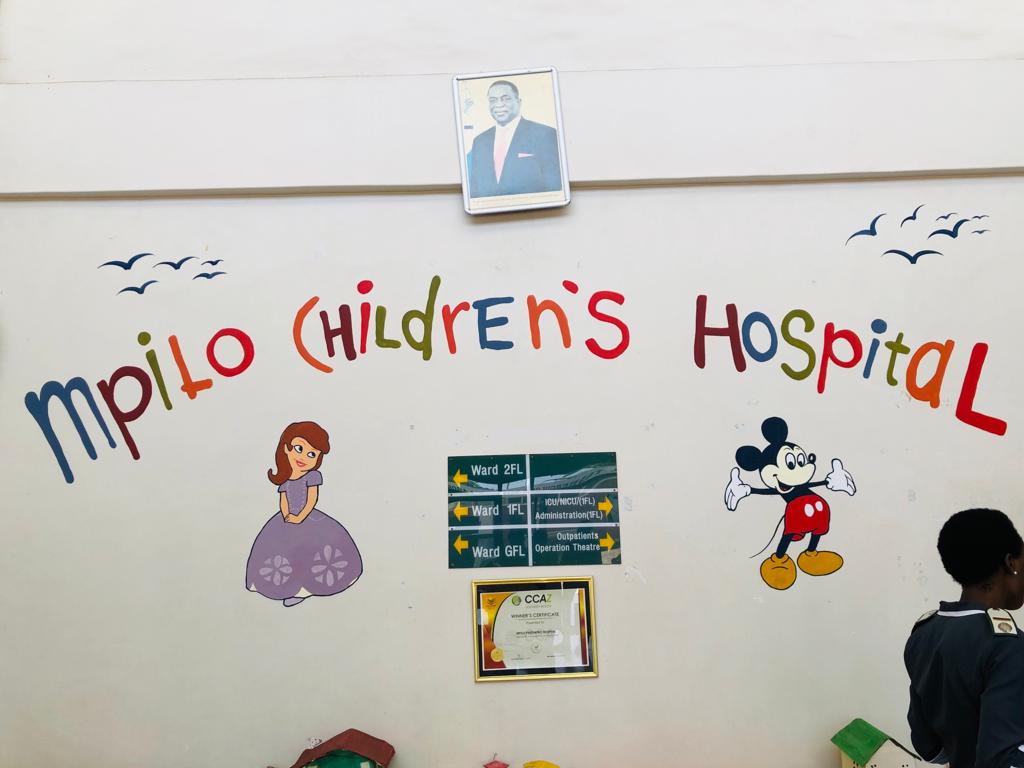A delegation from the Japan International Cooperation Agency (JICA), visited Mpilo Central Hospital in Bulawayo last week to assess the state of the institution for possible extension, modification and upgrading.
JICA is a government agency mandated to implement technical cooperation and delivers the bulk of Official Development Assistance for the Japanese government.
Mpilo Hospital is in dire need of an upgrade, as it is 63 years old and was built for a population of 250 000 but now serves more than two million patients.
The institution is struggling to cater for all patients and the maternity ward has seen some pregnant mothers sleep on the floor due to a shortage of beds.
According to Acting Chief Executive Officer, Professor Solwayo Ngwenya, Mpilo’s Casualty Department serves about 200 people a day and needs critical equipment to assist patients.
Prof Ngwenya said the intervention from the Japanese would be a “welcome development as it would upgrade Mpilo into an institution that provides quality health care in Matabeleland.”
Representatives from JICA made up of architects and consultants embarked on an extensive tour of Mpilo from Thursday to Friday to see what repairs, modifications and upgrades were needed.
JICA is the agency that extended Mpilo’s maternity wing and built the children’s hospital and in the past two years, spent US$6 million providing medical assistance to Zimbabwe’s national hospitals.
The Japanese delegation thoroughly assessed Mpilo’s maternity wing, children’s hospital, grounds, mortuary, and the operating theatres, where some of the 10 theatres are non-functional.
They visited the X-ray department -where the radiographer said two of the X-ray machines are dead, adding that film was also expensive.
Acting Mpilo Principal Nursing Officer, Phineas Sithole said the hospital hoped the Japanese would assist in building an antenatal ward to cater for pregnant mothers.
“We also discussed the state of our equipment and the children’s hospital. Initially, they supplied us with equipment which has gone obsolete. We also look at the drainage system because we are experiencing some frequent blockages. We also discussed the feasibility of having a new department for the antenatal mothers and we showed them two spaces which they viewed that can be best for them,” he said.
Sithole noted most machinery at the laundry was not working and in need of revamping, which has resulted in Mpilo subcontracting a company.
“That is difficult, as the company finds it hard to meet demands. We also went to the kitchen and saw cooking pots. They looked at the possibility of revamping all those things and we discussed capacity. We also proposed an extension of the maternity and children’s hospital,” he said.
In an interview with CITE, an architect with JICA, Masato Utsunomiya, said the visit was to survey and collect data of what medical equipment was needed, as Japan’s assistance to the Covid-19 response in African countries.
“We try to make good cooperation with African countries especially Zimbabwe, we established a children’s hospital and see what condition it is in and discuss further for facility extension, equipment supply,” he said.
A consultant with JICA, Toshiyasu Murai, concurred they were in Mpilo for possibilities of “future corporation to supply equipment” and added that the agency had also identified Sally Mugabe Hospital in Harare.
But he could not say when refurbishment works will commence.
“It is our job to propose this to JICA, but we are not sure when they will actually implement it. It really depends on the budget and we have to incorporate the Ministry of Foreign Affairs. We cannot say for sure when it will start but funding comes from the Japanese Government,” Murai said.
JICA’s person in charge of coordination, Yosuke Konno, said the team wanted to see the actual situation and consider future cooperation.
“We hope our survey will be fruitful and there will be good cooperation,” he said.
Another senior architect with JICA, Kazunori Seki, in charge of looking at medical facility improvement, planning and construction noted their visit was not only a great opportunity to upgrade national hospitals in the country but “an opportunity to work with Zimbabwean engineers and medical staff.”




